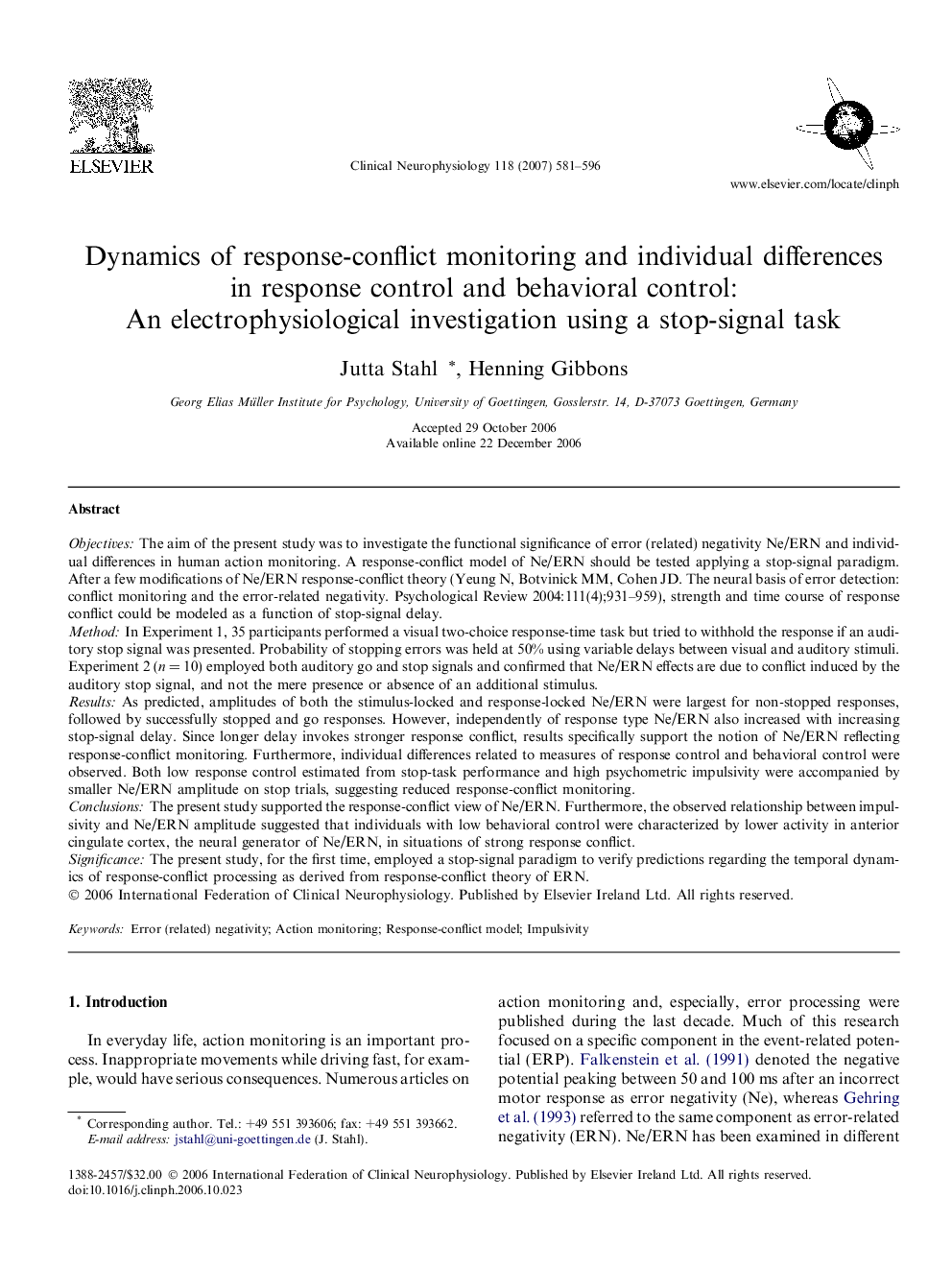| کد مقاله | کد نشریه | سال انتشار | مقاله انگلیسی | نسخه تمام متن |
|---|---|---|---|---|
| 3047846 | 1185067 | 2007 | 16 صفحه PDF | دانلود رایگان |

ObjectivesThe aim of the present study was to investigate the functional significance of error (related) negativity Ne/ERN and individual differences in human action monitoring. A response-conflict model of Ne/ERN should be tested applying a stop-signal paradigm. After a few modifications of Ne/ERN response-conflict theory (Yeung N, Botvinick MM, Cohen JD. The neural basis of error detection: conflict monitoring and the error-related negativity. Psychological Review 2004:111(4);931–959), strength and time course of response conflict could be modeled as a function of stop-signal delay.MethodIn Experiment 1, 35 participants performed a visual two-choice response-time task but tried to withhold the response if an auditory stop signal was presented. Probability of stopping errors was held at 50% using variable delays between visual and auditory stimuli. Experiment 2 (n = 10) employed both auditory go and stop signals and confirmed that Ne/ERN effects are due to conflict induced by the auditory stop signal, and not the mere presence or absence of an additional stimulus.ResultsAs predicted, amplitudes of both the stimulus-locked and response-locked Ne/ERN were largest for non-stopped responses, followed by successfully stopped and go responses. However, independently of response type Ne/ERN also increased with increasing stop-signal delay. Since longer delay invokes stronger response conflict, results specifically support the notion of Ne/ERN reflecting response-conflict monitoring. Furthermore, individual differences related to measures of response control and behavioral control were observed. Both low response control estimated from stop-task performance and high psychometric impulsivity were accompanied by smaller Ne/ERN amplitude on stop trials, suggesting reduced response-conflict monitoring.ConclusionsThe present study supported the response-conflict view of Ne/ERN. Furthermore, the observed relationship between impulsivity and Ne/ERN amplitude suggested that individuals with low behavioral control were characterized by lower activity in anterior cingulate cortex, the neural generator of Ne/ERN, in situations of strong response conflict.SignificanceThe present study, for the first time, employed a stop-signal paradigm to verify predictions regarding the temporal dynamics of response-conflict processing as derived from response-conflict theory of ERN.
Journal: Clinical Neurophysiology - Volume 118, Issue 3, March 2007, Pages 581–596